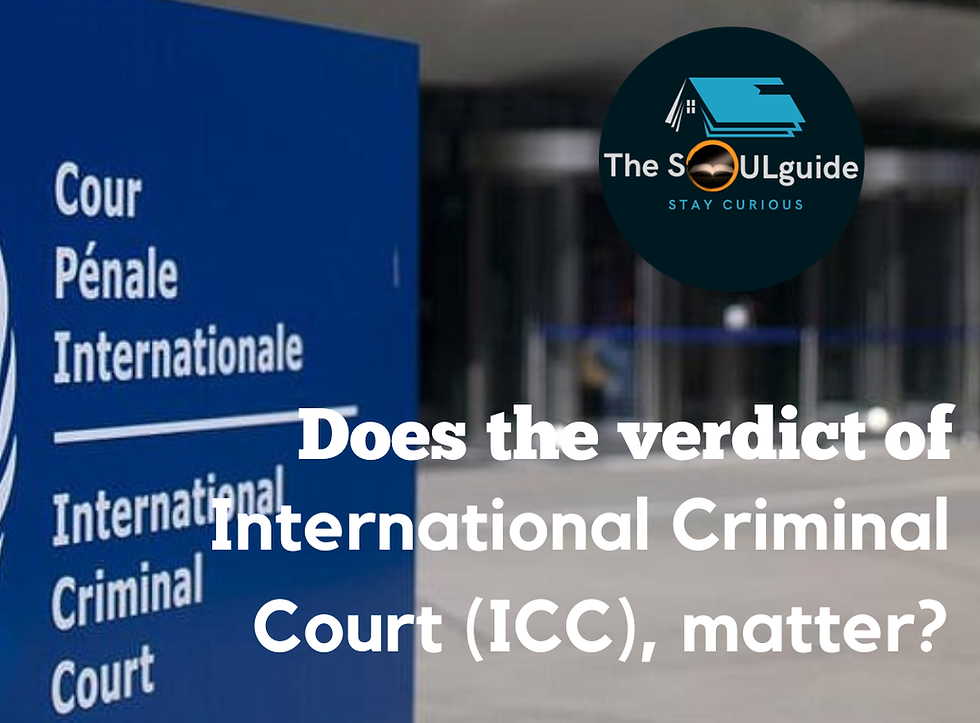Two Big Reasons for Corruption in India
- TheSoulGuide

- Dec 11, 2022
- 3 min read
International Anti-Corruption Day is observed on 9th December every year, since 2003 the United Nations convention against corruption was passed to raise public awareness for anti corruption. In India corruption is wide and exist is all spheres including the private sector as it generally flows from the private sector into public sector. But not only India it is all across the world in all countries somewhere bit less and somewhere widely present at all levels of governance. Due to emergence of technology there has been lot of changes in the way benefits reaches the people but still leakages happen at many levels.
According to Transparency International (TI), India ranks very high, 85 out of 180 countries in the Asian region. Although the situation is lot better than 2013 when the country was ranked 94, India has a long way to go to tackle it. In wider Asian region, India has one of the highest incidences of bribery and use of personal connections to access key public services such as health and education. According to the same survey, state services particularly courts, police, revenue department, and hospitals are the most corrupt bodies.

There are many reasons for corruption in India and all of us are party to it. Lets understand the root cause of Corruption in India?
British Raj
Corruption is prevalent in India since the time of British Raj. They started to hire Indians into administration and expanded scope by the Government of India Act 1919, which expanded the participation of Indians in the Government of India. Then enacting the Official Secrets Act 1923 which created a graft culture of not disclosing things, permitting corruption and culture of non disclosure of information.
Adding to this, if we get into the history of formation of CBI (Central Bureau of Investigation), it derives its powers from Delhi Special Police establishment Act 1946 which was enacted by the British to check the corruption in various department during the world war 2. This shows wide spread corruption during the administration of British Raj in India.
License Permit Raj
India opted for socialist system and the world Socialist was inserted into the Preamble of the constitution of India by 42nd constitutional Amendment Act of 1976. Coming of License Raj enabled the corruption, it increased red tapism and culture of giving money to Sarkari Babu's and politicians to get your file cleared fast due to multiple checks, compliance and over regulation in the system. The culture of giving money in the government department to get your work done stems from this very reason.
This also indicates that, it is not right to only blame the politicians because all of us are party to it and strong reforms and mass support of people against corruption is necessary. Everyone todays thinks of giving money to someone in the department to get your work done rather than multiple rounds of visiting the office.
Now after the LPG reforms of 1991, the corruption did not reduced but it increased as now everyone was allowed to do business without license and the government department were already used of taking money which increased the corruption. The rent seeking behaviour took on many new innovative avatars. While economic liberalisation ended many old types of corruption largely related to the license permit raj, the same phenomenon continues in some form or the other in several key sectors, particularly minerals, natural resources, and services. For example, the opaque and arbitrary allocation of coal blocks and the telecom spectrum (infamously called 2G) which hit the state exchequer, clearly points to the massiveness of post-reform corruption. So much so that the United Progressive Alliance (UPA)-II (2009-14) had to spend most of its time fighting a series of allegations of graft.
Although many key sectors of the Indian economy have been liberalized, the same has not been backed by the required political and administrative reforms. Most of the administrative and discretionary powers are still with public officials, leading to kickbacks and abuse of powers.
We need to learn and improve on our mistakes. It is very important to understand that blaming the previous government won't do anything good as corruption is prevalent now also. It is for the good of society that we abolish the culture of graft and be honest with our work. Some good legislations passed previously to check corruption are the RTI (Right to information), Lokayukta's and Lokpal Bill, Central Vigilance Commission, Central Information Commission, creation of the office of the CAG (Comptroller and Auditor General).
stay tuned for more..
Get membership to feature your article. Check here.




Comments